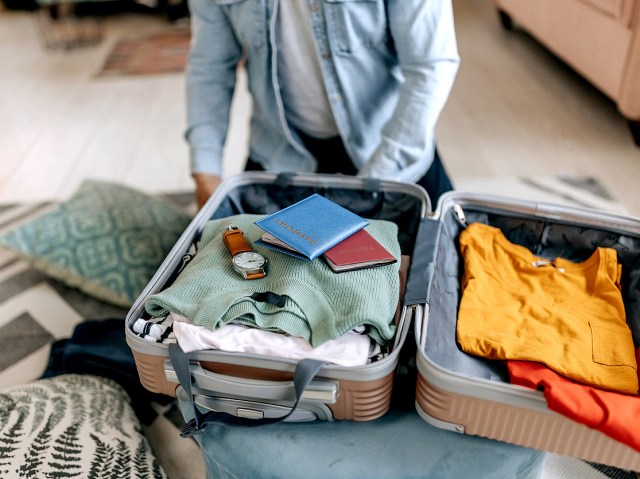No matter how diligently you prepare ahead of time, unexpected ailments can turn any vacation upside down. A long-awaited getaway can suddenly become stressful if you get ill abroad, as potential language barriers can make navigating those unfamiliar medical systems challenging. It’s important to do some research beforehand so that you’re not caught completely flat-footed if a worst-case health scenario occurs. Here’s what to do if you get sick in another country.
Do Your Best to Prepare Before Your Trip

If you’re concerned about getting sick at any point during your upcoming trip, there are steps you can take beforehand to be as prepared as possible. Before doing anything else, contact your health insurance provider to determine if your specific health plan covers illness abroad. Notably, plans such as Medicare do not cover costly expenditures such as evacuation back to the U.S. If you’re an older individual who relies on Medicare, you can consult this guide from AARP and contact your provider to learn more about your options.
If you don’t have medical coverage abroad, it may be worth buying short-term coverage for the duration of your vacation. Travel insurance can cover costs related to hospital visits, medication, and other medical costs incurred overseas. Contact insurance providers to learn more about each individual plan. Longer-term travel insurance is also offered to expats located abroad.
It’s also important to know your blood type before traveling internationally, as certain countries may have less reliable blood screening systems than in the U.S. You should also carry a list of the generic names for medication that you’re currently taking, as they may not sell U.S. brand-name medications overseas. The International Association for Medical Assistance to Travellers is a helpful source for finding English-speaking medical providers in countries where the English language is limited.
Steps to Take After Getting Sick

You did your due diligence, but just as you feared, illness strikes in the middle of your vacation. So, what do you do next? Depending on the severity of your situation, contact any local U.S. embassy or consulate if you’re able to do so — the U.S. State Department provides a list of those locations in each country. They can help direct you to local medical providers, and may also be able to help you procure wired funds from friends and family back home in the event that you need additional financial assistance to cover the impending medical bills.
If you purchased travel insurance, then contact the provider immediately to alert them about your condition and see if they have any advice on how to proceed. Some travel insurance providers won’t cover medical costs abroad unless they authorize it first, so take the time to check in and learn more about your options. You may need to pay for medical costs upfront, but you’ll be able to file an insurance claim once you return from your trip and are feeling better.
In the event of a serious situation in which your life is at risk, you may have no choice but to contact local emergency services and deal with the financial consequences later on. You may want to find out the local phone number for emergency services, so it’s handy in the event of a worst-case scenario.
Use Translation Apps to Communicate

No matter how well prepared you may be, language barriers can still pose a major hurdle for communication abroad. Consider downloading translation apps to your smart device such as iTranslate, Google Translate, and SayHi. These apps will make it easier for you to chat with a non-English-speaking doctor and tell them what’s bothering you. Many of these apps also come with both audio dictation and audio playback features, so you don’t have to worry about pronouncing unfamiliar words correctly.
Stay Hydrated and Comfortable

Short of seeking medical care, there are other ways to avoid making your condition worse. It’s essential to stay hydrated, and in order to do so, you should always drink bottled water. Some countries have unreliable tap water, so avoid potential contamination and stick to bottled water. It’s also important to avoid other agitators that may irritate the stomach, such as trigger foods like spicy dishes or anti-diarrhea medication. Drink plenty of water until you can speak with a medical professional.
And if it’s not an emergency, it’s important to stay calm and get as much rest as possible. For example, try to have food delivered to your room. Don’t push yourself to get better just to get back to your itinerary — you’ll want to make sure your body is fully healed before you hit the tourist sites again. They’ll still be there when you’re better!
More from our network
Daily Passport is part of Inbox Studio, an email-first media company. *Indicates a third-party property.
















